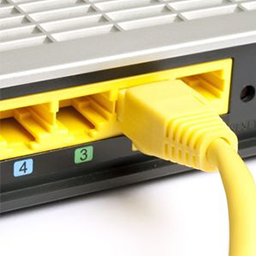Computer Science: Cyber Security
Overview
Cyber Security is a field that involves protecting the confidentiality, integrity and availability of information. The Quincy College Cyber Security program is an interdisciplinary Associates Degree program incorporating business, networking, law, and computer programming courses for individuals preparing for a career in Cyber Security.
Program Outcomes
At the completion of this program, the student should be able to:
- Demonstrate security assessment techniques.
- Mitigate cyber threats identified using the risk management process.
- Explain the ethical responsibilities organizations have to protect an individual’s private data and describe how to secure that data.
- Demonstrate knowledge of cybersecurity principles and methods.
- Design a secure network using firewalls, encryption, and other technologies.
- Configure and secure a Linux-based web server.
- Describe how to conduct an investigation, secure an incident, and prepare for an evidence search.
- Use forensic data acquisition tools.
- Describe the theory of operation for file systems and network intrusion detection/protection systems.
- Analyze various configuration, data, and log files.
Academic Division of Professional Programs
Computer Science: Cyber Security Courses
-
Code
Course
Credits
-
- BUS 220
Business Ethics
- 3
-
- CSI 116
Introduction to Programming
- 3
-
- CSI 217
Operating Systems
- 3
-
- CSI 226
UNIX with Linux
- 3
-
- CSI 242
Computer Systems Security
- 3
-
- CSI 244
Networking I
- 3
-
- CSI 245
Networking II
- 3
-
- CSI 265
Linux System Administration
- 3
-
- CSI 266
Computer Forensics
- 3
-
- LAW 203
Cyber Law
- 3

View Current Semester Courses>>
Start your education at Quincy College this fall. Our online and blended curriculum makes it easy for you to stay safe and earn your degree!
You might also be interested in...
-

Computer Science: Networking
The Quincy College Computer Science Program is a program that is designed to prepare students for a variety of entry-level positions.
-

Computer Science: Programming
The Quincy College Computer Science Programming program is designed to prepare students for a variety of entry level positions.
-

Areas of Study
Quincy College is a unique learning environment where cultures meet, join forces, and weave a global context around college academics.
-

Courses
View the current course schedule. Quincy College offers the programs you want, the flexibility you need and the price that makes it all possible.
